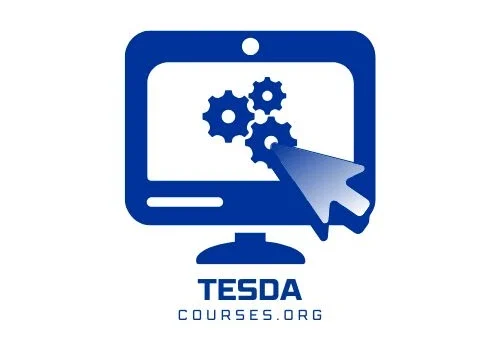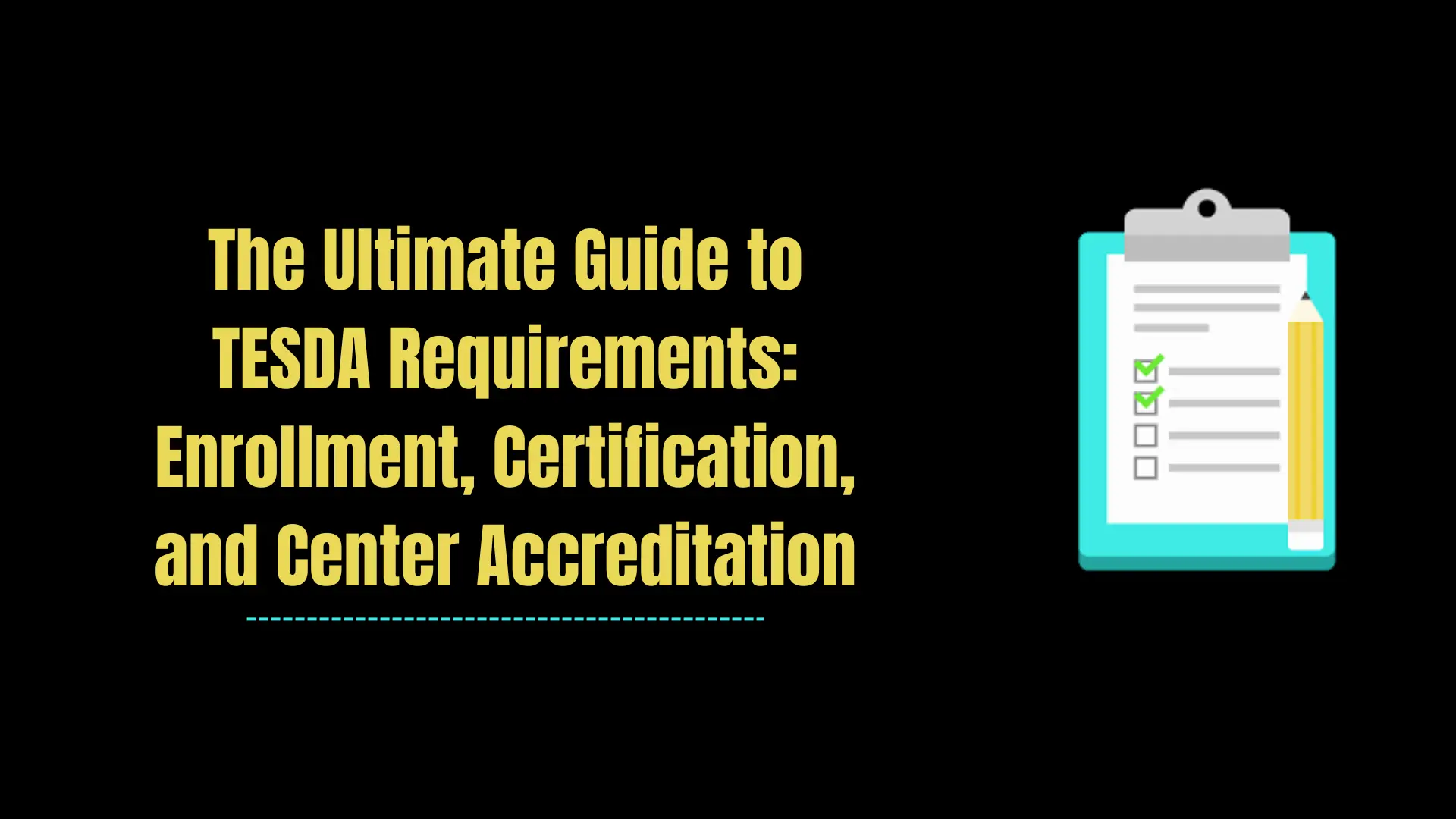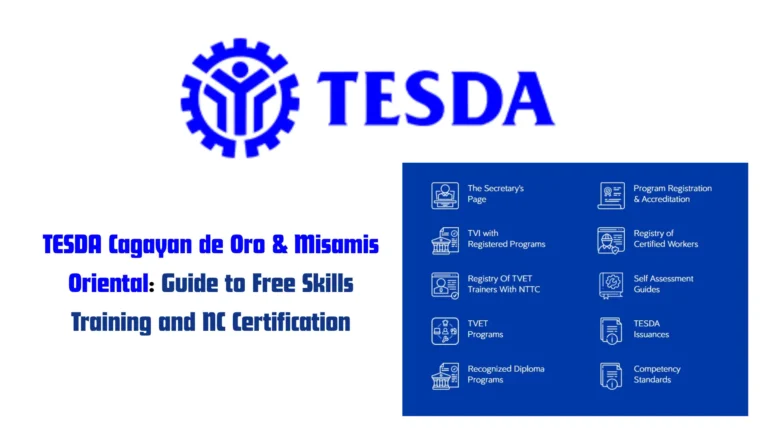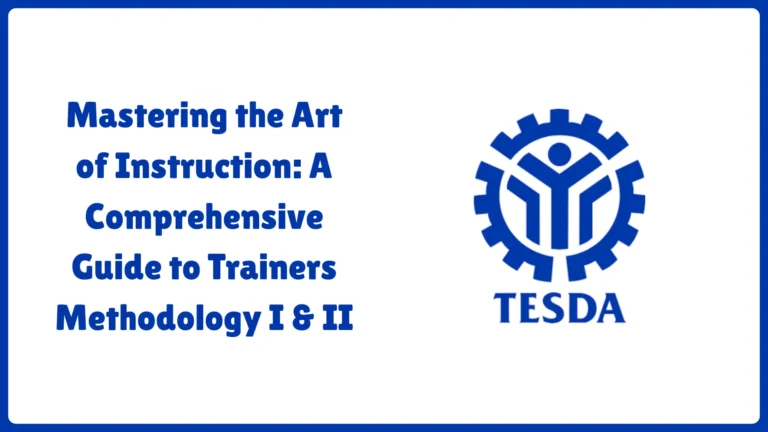The Ultimate Guide to TESDA Requirements: Enrollment, Certification, and Center Accreditation
Introduction: Your Gateway to a Skilled Future Starts with the Right Documents
Embarking on a journey with the Technical Education and Skills Development Authority (TESDA) is a decisive step toward unlocking career opportunities, enhancing your skills, and achieving financial independence. However, the path to acquiring a coveted National Certificate (NC) or Certificate of Competency (COC) begins with a crucial first step: understanding and fulfilling the necessary TESDA requirements.
The term “TESDA requirements” is not a one-size-fits-all concept. It encompasses a spectrum of prerequisites that vary significantly depending on your goal. Are you a prospective student seeking to enroll in a TESDA-registered program? An aspiring professional aiming for assessment and certification? Or perhaps an institution looking to become a TESDA-accredited training center? Each path has a distinct set of mandates, documents, and procedures.
This exhaustive pillar guide is designed to be your master reference, demystifying every facet of TESDA’s prerequisite landscape. We will provide a granular breakdown of the common needs, from the basic valid ID and birth certificate to the more specific proof of experience for higher-level assessments. We will delve into the intricate process for institutions, detailing the comprehensive list of documents needed, including facility details, trainer qualifications, and business permits.
Beyond mere lists, we will answer the profound questions that underlie these requirements: What is meant by an NC? What is the use of a TESDA certificate in the real world? And critically, how much is the TESDA training fee? Whether you’re inquiring about a TESDA language course cost or the requirements for an undergraduate-level program, this guide illuminates the process, ensuring you are fully prepared to navigate the system and achieve your goals.
Demystifying the “TESDA Requirements” Ecosystem: Three Primary Pathways
The umbrella term “TESDA requirements” can be neatly categorized into three main streams, each serving a different audience with unique objectives:
- Enrollment Requirements: The documents needed by an individual trainee to register and participate in a training program offered by a TESDA-registered program at a local training center (e.g., a Regional Training Center).
- Assessment and Certification Requirements: The prerequisites for an individual to undergo the competency assessment to receive a National Certificate (NC) or Certificate of Competency (COC), which may be done after training or through direct assessment based on experience.
- Institutional Accreditation Requirements: The stringent criteria and documentation that a training institution must submit to TESDA to become officially accredited to offer programs, issue certificates, and receive scholarships.
Understanding which pathway applies to you is the first step in streamlining your preparation process.
Section 1: TESDA Requirements for Trainee Enrollment in a Program
This is the most common starting point for thousands of Filipinos. The requirements here are generally standardized but may have slight variations depending on the specific Training Center or Institution.
The Core Mandatory Documents for Enrollment:
- 1. Valid Identification Document (ID): A primary, government-issued photo ID is non-negotiable for identity verification.
- Accepted Forms: Philippine Passport, Driver’s License, SSS ID, UMID, PhilSys ID (National ID), Voter’s ID, PRC ID, or Postal ID.
- Purpose: To confirm your identity and Philippine citizenship or legal residency status.
- 2. Proof of Educational Background: This validates that you have the foundational knowledge to undertake the training.
- What to Submit: Your original High School Diploma, Senior High School Graduate certificate, or Transcript of Records (TOR). For those who did not complete formal schooling, the Alternative Learning System (ALS) Certificate is an accepted equivalent.
- Purpose: Certain courses have specific educational attainment prerequisites (e.g., a Caregiving NC II typically requires a high school diploma).
- 3. Passport-Sized Photographs: These are used for your trainee identification, enrollment forms, and eventual certification records.
- Specifications: Typically, three (3) to five (5) pieces of recent, colored, passport-sized pictures (1×1 inch) with a plain white background and your name printed at the bottom.
- Purpose: For visual identification and official documentation.
- 4. Duly Accomplished Application Form: This is the formal document that captures your personal and course-specific data.
- How to Get It: The form is provided by the training institution upon inquiry. It must be filled out completely, accurately, and legibly.
- Purpose: To collect essential information for the institution’s records and for reporting to TESDA.
Additional Documents That May Be Required:
- Barangay Clearance: Proof of residency within the community.
- Medical Certificate: For courses that require a certain level of physical fitness (e.g., heavy equipment operation, caregiving).
- Income Affidavit or Proof of Indigency: To qualify for certain scholarship programs like TWSP or PESFA, which cover the TESDA training fee.
Where to Find Specific Enrollment Requirements:
The absolute best source of information is the website or administrative office of the specific TESDA-registered Training Center or Institution you plan to attend. A center in Manila might have a slightly different process than one in Cebu. Always contact them directly for their most updated list.
Section 2: TESDA Requirements for Assessment and Certification
Successfully completing a training program does not automatically grant you a certificate. You must pass a competency assessment. Furthermore, experienced workers can undergo assessment directly without formal training—a process known as the Recognition of Prior Learning (RPL).
The Core Mandatory Documents for Assessment:
- 1. Completed Application Form: A specific Assessment Application Form, which can often be downloaded from the TESDA website or obtained from an accredited assessment center.
- 2. Proof of Training or Experience:
- For Training Graduates: Your Certificate of Training from a TESDA-accredited program.
- For RPL Applicants (Experienced Workers): A detailed Work Experience Certificate from previous employers, clearly stating the nature of work and the duration (which must often be at least 12 months of relevant work or teaching experience). A comprehensive resume may also be required.
- 3. Identification Pictures: Similar to enrollment—recent, colored, passport-sized pictures with a white background.
- 4. Original Copy of Previous Certificate (For Higher Levels): If you are applying for a higher-level assessment (e.g., NC III), you must present the original National Certificate (NC) of the lower level (e.g., NC II).
Understanding the Assessment Process:
The assessment is a practical, hands-on evaluation of your skills. An assessor will observe you performing tasks based on the competency standards for your chosen qualification. You will be rated on your ability to perform them to industry standards.
Where to Find Specific Assessment Requirements:
Visit the official TESDA website and navigate to the “Assessment and Certification” section. Here you will find detailed guidelines, application forms, and a directory of accredited assessment centers.
Section 3: TESDA Requirements for Institutional Accreditation
For an institution to offer TESDA-recognized programs, it must undergo a rigorous accreditation process. This ensures quality and standardization across the country.
The Comprehensive List of Documents for Accreditation:
The TESDA requirements for training center accreditation are extensive and cover all aspects of the institution’s operations.
- 1. Business Registration and Legality:
- SEC Registration (for corporations) or DTI Registration (for sole proprietorships).
- Mayor’s Permit/Business Permit from the local government unit (LGU).
- 2. Technical and Operational Documents:
- Detailed Training Plan / Curriculum: Must align exactly with TESDA’s Training Regulations (TR) for each program.
- List of Equipment and Tools: A complete inventory of functional equipment that meets the specification and quantity required by the TR.
- Instructional Materials: Lesson plans, manuals, textbooks, and audio-visual materials for both trainers and students.
- 3. Human Resource Requirements:
- Trainer’s Qualifications: For each trainer, submitted documents must include:
- National Certificate (NC) at least one level higher than the course to be taught.
- Trainer’s Methodology Certificate (TMC) or proof of equivalent training experience.
- Resume, PRC license (if applicable), and proof of relevant industry experience.
- Trainer’s Qualifications: For each trainer, submitted documents must include:
- 4. Facility Requirements:
- Evidence of Available and Adequate Training Facilities: Floor plans, pictures, and lease contracts or proof of ownership. Facilities must be conducive to learning, safe, and have adequate lighting, ventilation, and space per trainee as prescribed by TESDA.
- Contracts for Health Services: If the institution does not have an in-house clinic, a contract with a nearby medical facility for emergency services is required.
- 5. Other Documents:
- Affidavit of Commitment to adhere to TESDA rules and regulations.
- Quality Manual outlining the institution’s processes.
Where to Find Specific Institutional Requirements:
Go to the official TESDA website and look for the “Program Registration” or “Institutional Accreditation” section. TESDA provides a detailed checklist and guidelines for prospective institutions.
Deep Dive: Answering Your Core Questions on TESDA
Beyond the lists of documents, understanding the underlying concepts is key to leveraging TESDA effectively.
1. How much is the TESDA training fee?
This is a complex question with a empowering answer: Many TESDA training programs are effectively free.
- Scholarship Programs: The vast majority of trainees are enrolled under TESDA scholarship programs like the Training for Work Scholarship Program (TWSP) or the Private Education Student Financial Assistance (PESFA). These cover the full cost of tuition and assessment fees.
- Self-Funded Training: For those who do not qualify for or find scholarships unavailable, the TESDA training fee varies significantly. It depends on the course (e.g., a welding course with consumables costs more than a basic computer course), the location, and the institution (public vs. private). You must contact the specific training center for their fee structure.
- Assessment Fee: There is a separate fee for the competency assessment, which also may be covered by scholarships.
2. What is meant by NC as a TESDA requirement?
“NC” stands for National Certificate. It is not a requirement you bring to TESDA; it is the credential you receive from TESDA.
- Definition: An NC is a credential awarded to individuals who demonstrate competence in all units of a qualification defined under the Philippine TVET Competency Standards System.
- Levels: NCs come in four levels, from NC I (basic manual skills) to NC IV (advanced skills and supervision). When a higher-level NC is a TESDA requirement for a trainer’s job or a higher-level course, it means you must have already achieved that lower-level certification.
- vs. COC: A Certificate of Competency (COC) is awarded for mastery of a specific cluster of units within a qualification, not the full set required for an NC.
3. What is the use of a TESDA certificate?
A TESDA certificate (NC or COC) is a powerful tool with multiple uses:
- Employment: It is a nationally and internationally recognized proof of skills, making you a more competitive job applicant locally and for overseas employment.
- Entrepreneurship: It provides you with the certified skills needed to start your own business (e.g., cookery, electrical installation, beauty care).
- Further Education: It can be used as a credential for entering higher education programs or for enrolling in more advanced TESDA courses.
- Licensing: For some professions, a TESDA NC is a prerequisite to applying for a professional license from other government agencies.
4. How much does a TESDA language course cost?
TESDA offers language courses (e.g., Japanese Language and Culture, English Proficiency). Like other courses, the cost is highly variable.
- Scholarship Coverage: These courses are often covered by TWSP scholarships, especially if they are linked to in-demand overseas jobs.
- Self-Funded Cost: If paying out-of-pocket, costs can range from a few thousand to tens of thousands of pesos, depending on the duration, the institution, and the materials used. Contact a TESDA-accredited language center for their specific fees.
5. What are the TESDA requirements for undergraduate students?
This phrasing is often a misnomer. TESDA is not a university; it offers technical-vocational education and training (TVET) which is an alternative or complement to an undergraduate degree.
- The “Requirement”: The typical requirement for undergraduate students is simply a high school diploma or its equivalent (ALS). There is no need to be a college undergraduate to enroll in TESDA. In fact, many college graduates enroll in TESDA to gain practical, job-ready skills that their degree did not provide.
Frequently Asked Questions (FAQ)
Q: I lost my training certificate. Can I still apply for assessment?
A: Yes, but you will need to request a certified true copy of your certificate of training from the institution where you graduated. This process may take time, so it’s best to keep your original documents safe.
Q: Are there age requirements for TESDA programs?
A: Generally, you must be at least 18 years old to enroll in most TESDA programs. However, some courses may accept younger trainees, and certain skills programs are offered in partnership with senior high schools.
Q: How long is a TESDA certificate valid?
A: The National Certificate (NC) and Certificate of Competency (COC) do not expire. However, in fast-evolving industries like IT, you may need to take updated courses to stay relevant, even if your core certificate remains valid.
Q: Can I use a digital copy of my ID for enrollment?
A: For the initial inquiry, perhaps. However, for the actual enrollment process, almost all training centers will require the presentation of the original physical copy of your ID for verification purposes against the photocopy they will keep for their files.
Conclusion: From Documentation to Certification
Understanding TESDA requirements is the foundational step in a journey that transforms ambition into ability, and aspiration into achievement. These requirements are not arbitrary hurdles but essential mechanisms to ensure quality, standardization, and integrity within the Philippine TVET system.
Whether you are an individual trainee gathering your passport-sized pictures and high school diploma, or an institution compiling its trainer qualifications and business permits, each document serves a purpose in building a robust skills ecosystem. By meticulously preparing the correct requirements, you smooth your path to enrollment, streamline your journey to certification, and ultimately, unlock the door to a world of opportunity that a TESDA certificate provides.
Arm yourself with the knowledge from this guide, gather your documents with care, and take that confident first step toward a more skilled and prosperous future. Your potential is waiting to be certified.







